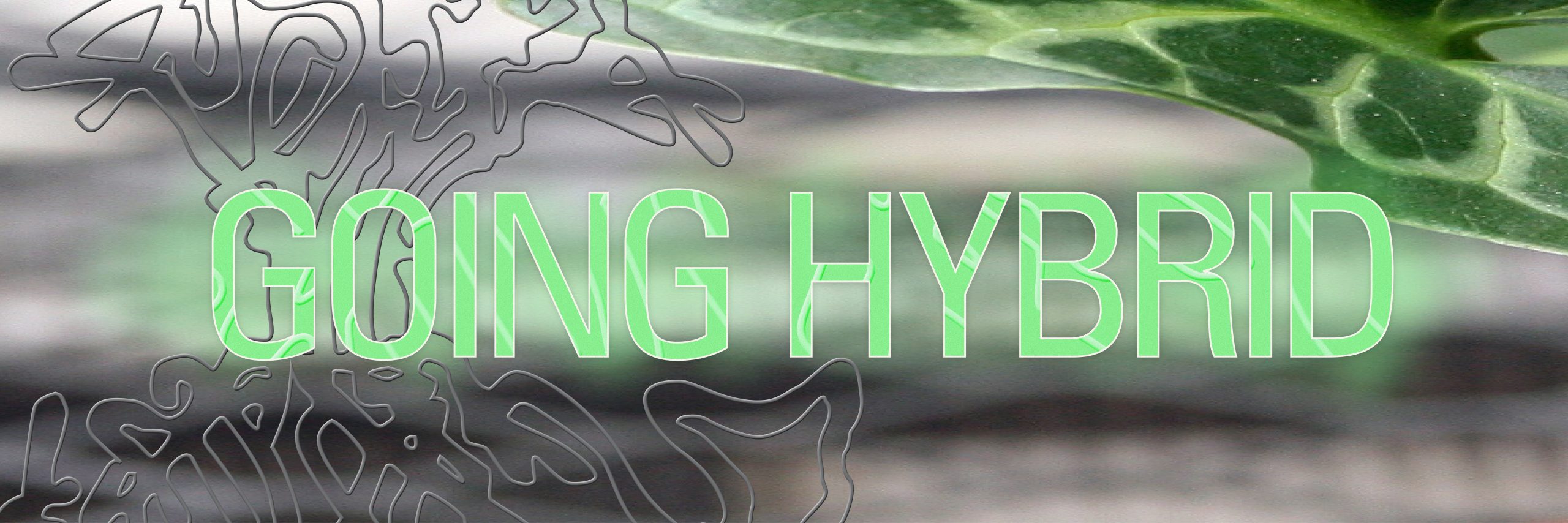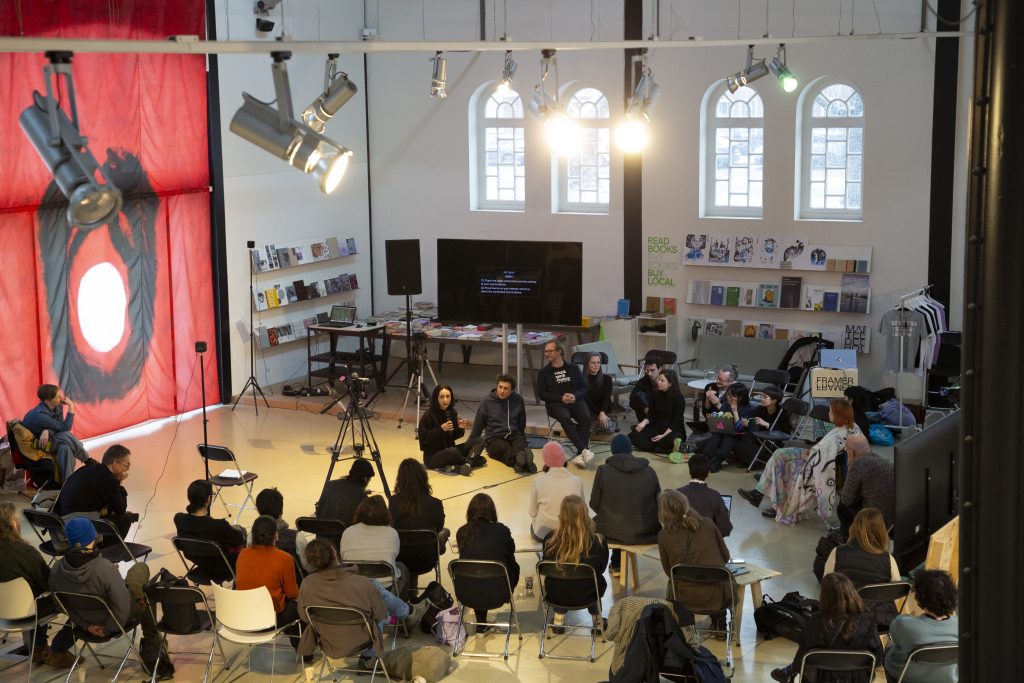
The closing session of the In-Between Media conference took place in Framer Framed and it featured the lectures ‘Archiving the Present’ by Mariana Lanary and Remco van Bladel, and ‘Remote Login Is a Lot Like Astral Projection (Stories from XPUB)’ by Michael Murtaugh and members of XPUB. The session ended with ‘Wrapping Up, Looking Ahead’, a round table talk with the expert session leaders, workshop leaders, and speakers of the day, moderated by Sofia Boschat-Thorez. As the last event of the conference, it appropriately addressed the questions of the sustainability of cultural archives, and the awkwardness entailed in hybrid forms of participation and collaboration and it served to gather the key takeaways from the expert sessions and workshops held that day.
During the lecture ‘Archiving the Present’, Mariana Lanary and Remco van Bladel talked about mediation in cultural archives, considering physical collections and databases in relation to digital-born archives. Their project ‘Archival Consiousness’ concerns a developing approach to the digitization of archives in libraries and cultural institutions. The guiding principle behind this endeavor is to actively factor in the complex network of relations, meanings, and labor entailed in both physical and digital archival practices.
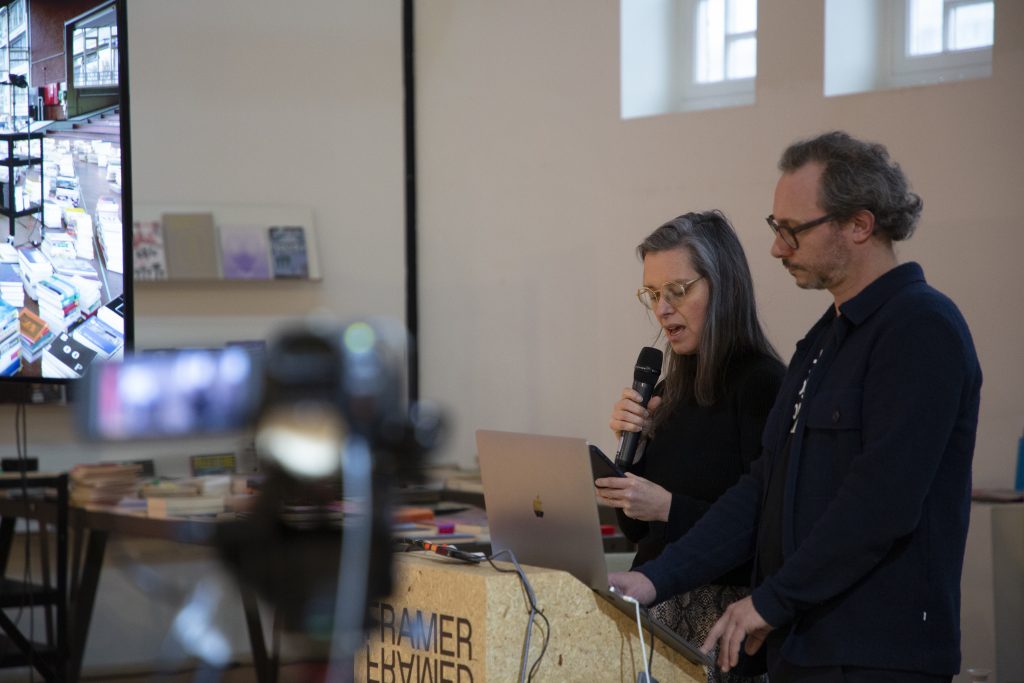
They spoke about how they used the format of an art exhibition to “reenact in the physical what happens in the digital and make data in real-time based on people’s input.” This practice aims to emphasize demystifying the digital and implicating the human intention and labor necessary to form and sustain a cultural archive. The communal aspect of archiving is highlighted, making manifest the human effort to create and maintain an archive. Furthermore, it situates the data production with the community that the archive is intended for and it provides tools for them to gain data literacy and develop a critical stance toward data models that are being taken for granted in everyday digital encounters. Such an approach also facilitates the preservation of the archive, as the sustained labor of keeping an archive prosperous is only possible through people forming meaningful relations to its contents and ways in which it is being formed and systematized.
Following Lanary and van Bladel, Michael Murtaugh (XPUB) gave a talk ‘Remote Login Is a Lot Like Astral Projection (Stories from XPUB)’ that revolved around open-source software and digital communal practices that gained prominence during the COVID-19 lockdowns, such as Etherpads, Jitsi links, mailing lists, Zulip threads, and wiki pages.
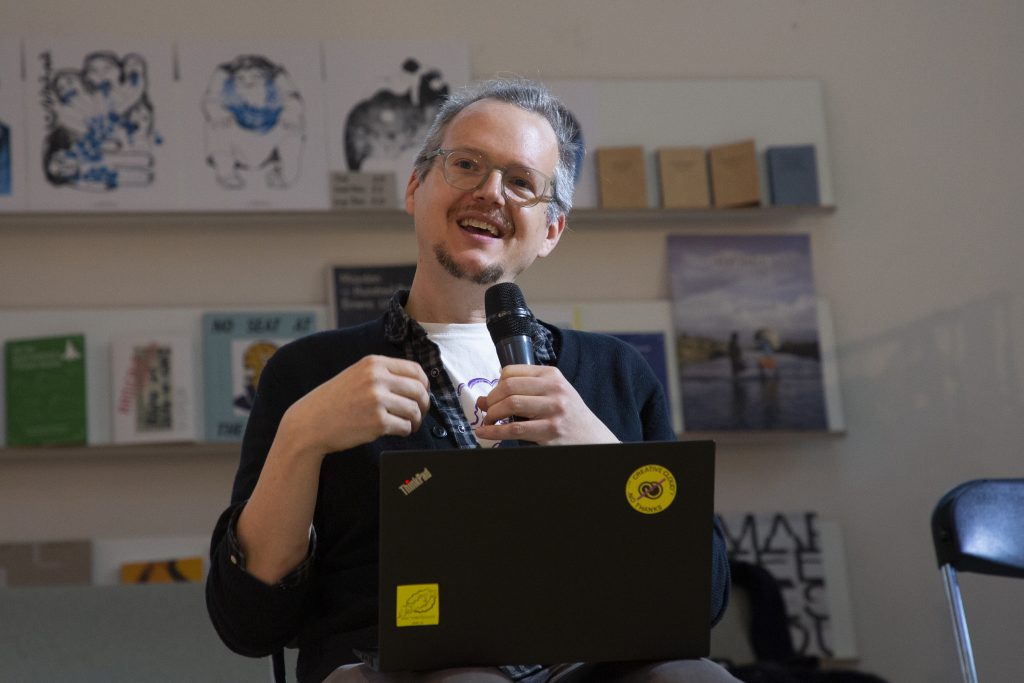
Murtaugh focused on the awkwardness that comes with digital encounters. Funnily enough, the technologically induced awkwardness was present throughout this event, as the moments of technological buffering were met with an aura of awkwardness: the audience anticipating a start, being impatient, looking at their phones, walking around, taking pictures of the screen. At the beginning of Murtaugh’s talk, the audio was lagged, creating an unintentional performative meta-commentary on the topic. Murtaugh embraces digital awkwardness as a way of doing something; being awkward means “not fearing redundancy and allowing many overlapping systems and different kinds of contexts and temporalities to co-exist, finding better systems that work in the process.” This allows for errors to happen, and enables (and demands) flexibility, revealing the presence of all of the agents and their complex interaction. As Murtaugh notes, the awkwardness “makes space for thinking without stopping us to act.”
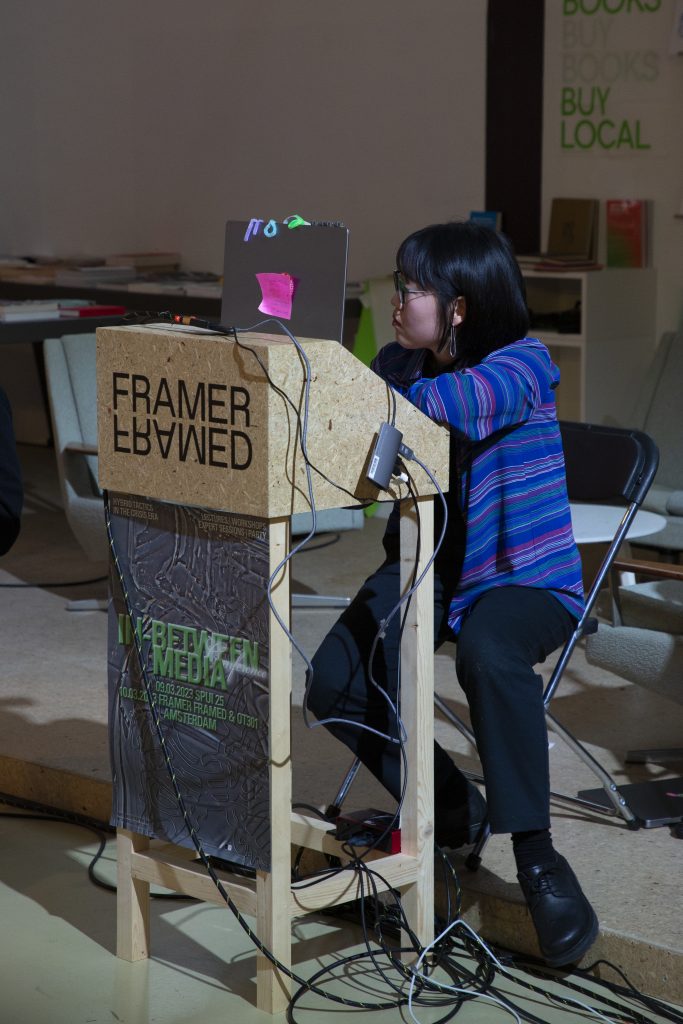
As one of the case studies in awkwardness, he chose to speak about Etherpad, an open-source platform programmed to allow for collaborative creation, in which the editorial control is negotiable, the roles are shifting and are being complemented to one another. Etherpad was designed to not require a login, but every author has their color of text, which makes it easy to negotiate to edit the same document at the same time. The synchronous work enables ‘stepping in’ to either contest the content or complement it, such as it would be in the case of communal note-taking.
The session closed off with the round table talk in which the expert session leaders, workshop leaders, and speakers of the day sat on the floor with a microphone circulating from one to the other as pertinent questions arose. Moderator Sofia Boschat-Thorez opened the discussion by offering the speakers to share their key takeaways of the day. Sort of resembling a group Zoom call in which people don’t know when to speak and who should start, Daniela Tenenbaum from IMPAKT broke the ice with her reflection on interaction being the key issue of hybrid events. Interaction, in her account, is not only important to consider when we think of it being between offline and online participants but also the interaction between different formats that come together in a hybrid event. Following that, Sepp Eckenhaussen from the INC reflected on the huge gap between social urgencies and creating fun and inspiring cultural programs. He noticed the revival in the urgency of tactical media and connected it to the liberty to create awkward and not-so-accessible experiments. In his account “the messiness is not as repulsive as he thought it would be” and for that to be the case, it is important to leave more time for reflection.
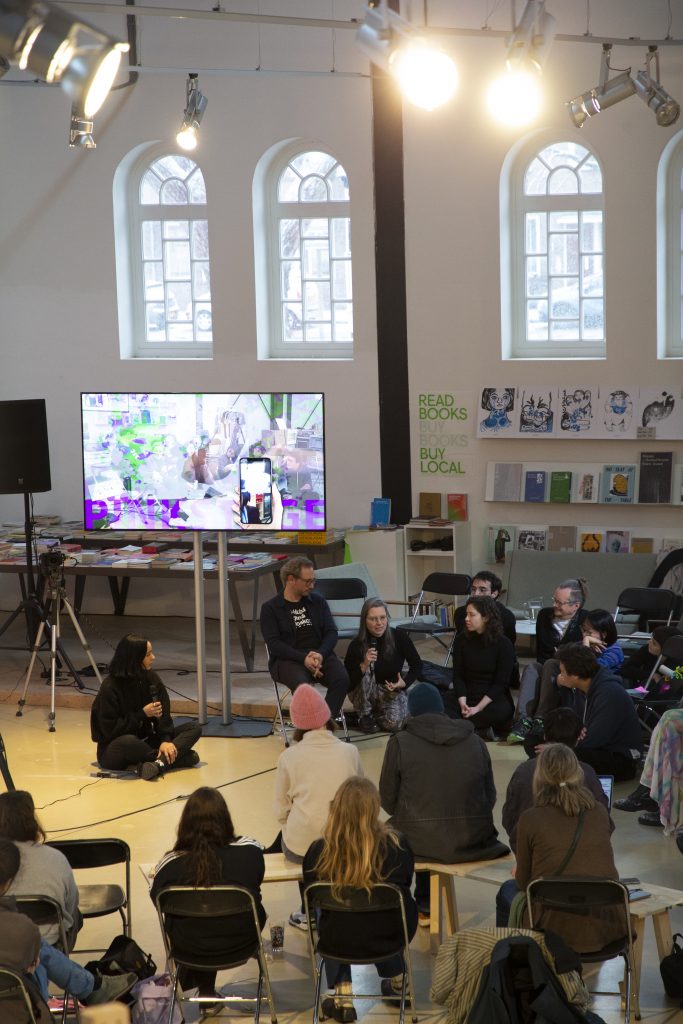
The discussion circled back to the archive, as Boschat-Thorez asked about what the term living archive means in relation to a zombie or a dead archive and questioned whether certain archives are sleeping or dormant. She brought up the questions ‘For when is the archive?’ and ‘For whom is the archive?’ in a connection that prompts thinking about the sustainability of the archive as being in direct relation to the community it serves, especially because funding doesn’t address the issues of maintenance. Mariana Lanary reflected on Archival Consciousness developing a model of archiving that is now applied in more than 40 cultural institutions in the Netherlands. Their model concerns available technologies, an open-level ontology consisting of main categories of people, places, and organizations, but is customized for and with every distinct archive. The model highlights the communitarian development of the archive, different implications for different communities, and subsequent customization of the archive that reflects the cultural and material conditions that help form and sustain it.
More of a semi-colon than a full stop, the closing session rightfully stressed the questions of sustainability in cultural (archiving) practices, as well as the importance of hands-on involvement of the community in their facilitation and preservation.


